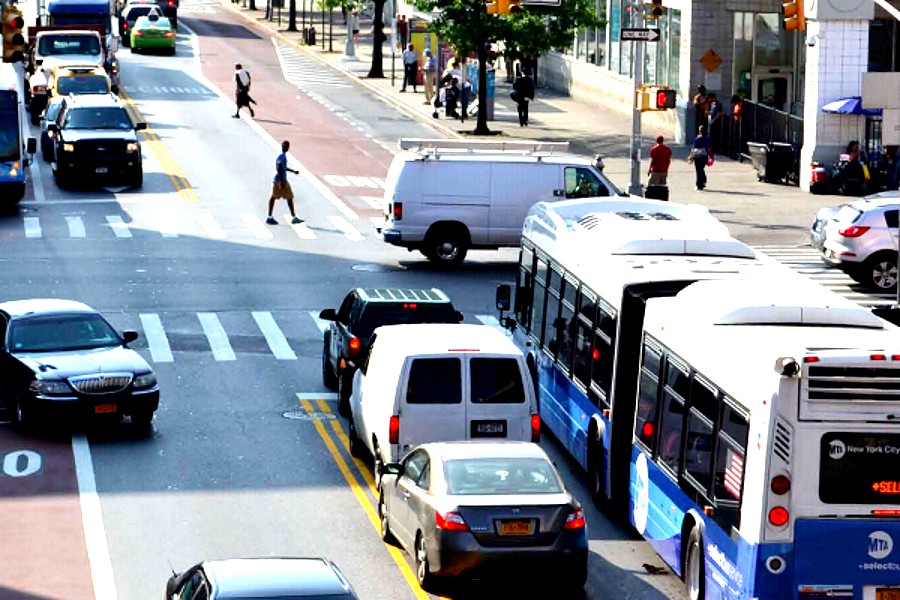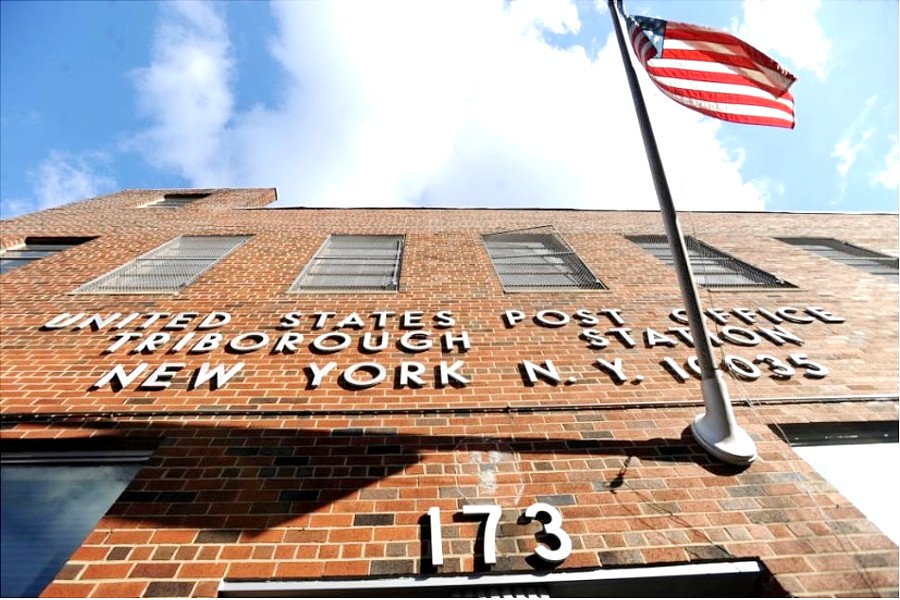
The Health Department today released its 2021 Hepatitis A, B, and C Annual Report, which includes surveillance data for 2021.
The report includes updates on Health Department-funded services and programming, recommendations for health care providers, and updates on progress toward implementing last December’s Plan to Eliminate Viral Hepatitis as a Major Public Health Threat in New York City by 2030 (Viral Hepatitis Elimination Plan).
“Hepatitis is preventable and treatable,” said Health Commissioner Dr. Ashwin Vasan. “However, the greatest threat to people living with hepatitis are barriers to care. We have to do all we can to reduce inequities and ensure that preventive services and treatment are available.”
According to the 2021 Hepatitis A, B, and C Annual Report, cases of chronic hepatitis B and chronic hepatitis C in New York City increased from 2020 to 2021, as more people accessed health care and screening services in 2021 following the first year of the COVID-19 pandemic. In 2021, New York City received increasing reports of hepatitis A among people who use drugs and people experiencing homelessness, populations affected by ongoing outbreaks of hepatitis A nationwide.
In 2021 in New York City, among all people newly reported with chronic hepatitis B, 56.7% were male and 43.2% lived in neighborhoods of high or very high poverty. Among all people newly reported with chronic hepatitis C, 62.9% were male and 43.1% lived in neighborhoods of high or very high poverty. People with a history of injection or intranasal drug use made up 47% of people ages 18 to 34 years newly reported with chronic hepatitis C in New York City in 2021. While the number of newly reported cases of chronic hepatitis B and C have declined since 2016, not all New Yorkers have equitable access to viral hepatitis screening, prevention, and medical care due to structural racism, discrimination, and underinvestment in certain neighborhoods and communities.
These factors prevent many marginalized communities from accessing critical viral hepatitis services and other health care, placing them at increased risk of infection and, for people living with hepatitis B or C, putting quality medical care further out of reach.
As a result, inequities by gender, neighborhood poverty level, and age persist, indicating opportunities for programming and services designed for communities at increased risk for acquiring hepatitis infection.
“While it is encouraging to see an overall decline in hepatitis B and C cases in New York City since 2016, we have more work to do to ensure all New Yorkers have access to care and treatment,” said Dr. Sarah Braunstein, Assistant Commissioner for the Health Department’s Bureau of Hepatitis, HIV, and Sexually Transmitted Infections. “We must continue to reduce discrimination and inequities that put many communities at risk for viral hepatitis and impact quality care and access to treatment. We thank the New York City Council for its continued investment in the Viral Hepatitis Initiative, and look forward to deepening our work with community partners to implement our Viral Hepatitis Elimination Plan. The Health Department remains committed to elevating the voices and experiences of New Yorkers with hepatitis B and C and ensuring they have the tools and resources to thrive.”
The 2021 Hepatitis A, B, and C Annual Report includes updates on Health Department partnerships and funded programming and services designed to prevent new infections, improve outcomes, and reduce health disparities. As highlighted in the report, in 2021, the Health Department’s hepatitis B and C tele-navigation program reached 965 New Yorkers living with hepatitis B or C by phone to offer health care navigation services. Of these, 201 people with hepatitis B received linkage to care services, 61% of whom were linked to hepatitis B medical care. Additionally, 273 people with hepatitis C received linkage to care services, 75% of whom were linked to hepatitis C medical care. In 2021, the Health Department’s Perinatal Hepatitis B Program provided case management services to 676 people with chronic hepatitis B and their infants to help prevent perinatal transmission. The Health Department funds 15 syringe service programs across New York City to provide health care services to people who use drugs, including hepatitis B vaccination, hepatitis C testing and care coordination, overdose prevention and harm reduction education, access to buprenorphine treatment, and distribution of sterile syringes and other drug use equipment to prevent the transmission of viral hepatitis and other blood-borne diseases. In 2021, the programs provided services to 20,191 New Yorkers.
The report also reminds health care providers of reporting requirements related to hepatitis cases, and sets forth a series of recommendations for providers related to screening, prevention, vaccination, and treatment as part of broader efforts to eliminate hepatitis B and C in New York City.
“Although we continue to make progress in preventing and treating hepatitis B, it remains a major health problem due to under-diagnosis,” said Dr. Y-Uyen Le Nguyen, Hepatitis B Program Director at Charles B. Wang Community Health Center. “The U.S. Centers for Disease Control recommends universal vaccination for individuals under age 60, which is a big step towards the elimination of viral hepatitis. However, we need to further our progress by providing universal screening as well as vaccination, while ensuring access to care for the 243,000 New Yorkers living with hepatitis B.”
“We applaud the City’s efforts towards health equity and justice by addressing viral hepatitis,” said Charles King, CEO at Housing Works. “We know that the communities we serve are disproportionately affected by hepatitis C specifically, and we will continue to work alongside City and State health departments to meet the needs of low-income and unhoused New Yorkers, people who use drugs, and LGBTQ communities.”
In June 2022, the New York City Council announced continued funding for the Health Department’s Viral Hepatitis Initiative. Established in 2014, the initiative supports community organizations to provide hepatitis B and C prevention, linkage to care, clinical services, and training. From July 1, 2020, through June 30, 2021, the Viral Hepatitis Initiative supported patient navigation programs that reached 3,155 people at risk for or living with hepatitis B or C, and supported the training of 180 peer and patient navigators and 2,882 clinical providers in hepatitis B and C prevention, testing, linkage to care, evaluation, and treatment.
In December 2021, the Health Department and community partners released the Viral Hepatitis Elimination Plan, a set of strategies to reduce the number of hepatitis C infections, improve the health of people with hepatitis B and C, and reduce health inequities related to viral hepatitis infection in New York City. The 2021 Hepatitis A, B, and C Annual Report features status updates on plan implementation.
As of 2019, more than 300,000 people are estimated to be living with hepatitis B or C in New York City. Without care and treatment, more than 75,000 people may progress to serious liver disease, liver cancer, or premature death. The Health Department works to improve the health of people affected by hepatitis B and C through prevention, screening, and vaccinations; reporting and surveillance; outbreak response; linkage to care; health care capacity building; community engagement and public education; and research and publication.
For information on hepatitis A, B, and C, or to find a location offering low- to no-cost hepatitis A vaccination; hepatitis B testing, vaccination, or treatment; or hepatitis C testing or treatment, visit nyc.gov/health/hepatitis or call 311.
For information on Hep Free NYC, a community coalition of clinical and community health providers, researchers, advocates, and people with lived experience of hepatitis B and/or C, or to get involved, visit HepFree.nyc.
Become a Harlem Insider!
By submitting this form, you are consenting to receive marketing emails from: Harlem World Magazine, 2521 1/2 west 42nd street, Los Angeles, CA, 90008, https://www.harlemworldmagazine.com. You can revoke your consent to receive emails at any time by using the SafeUnsubscribe® link, found at the bottom of every email. Emails are serviced by Constant Contact








